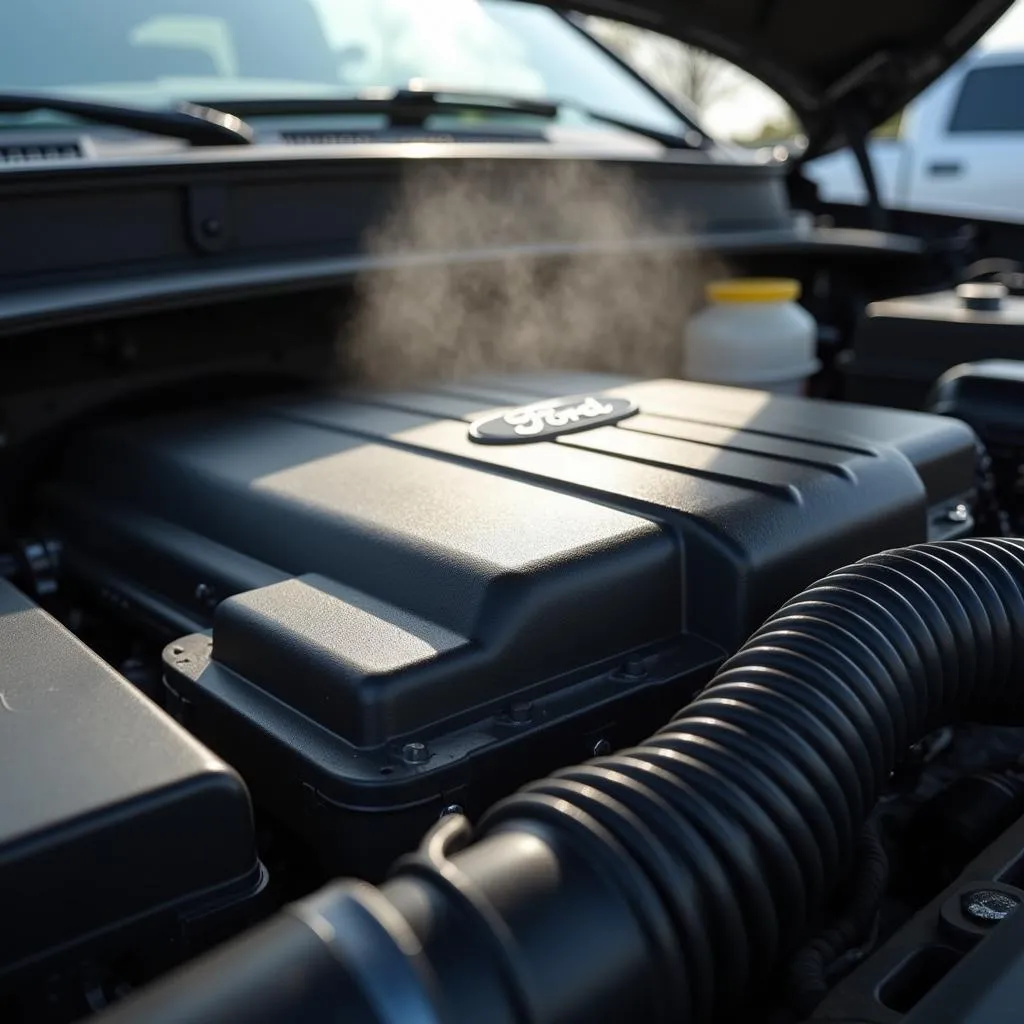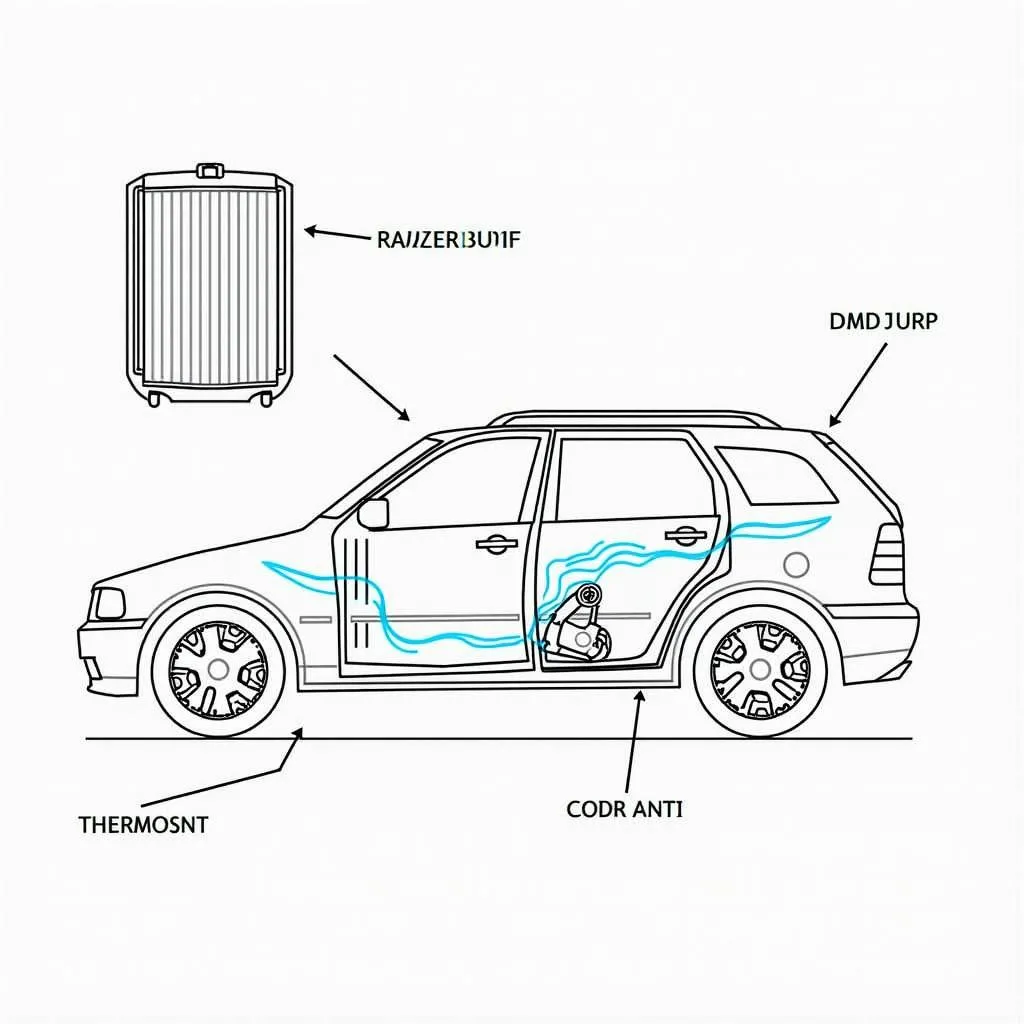Picture this: You’re cruising down the Pacific Coast Highway in your trusty 2003 Ford F-150, 5.4L engine purring like a kitten. Suddenly, that dreaded check engine light pops up, casting a shadow over your sunny California road trip. You pull over, grab your trusty OBD scanner, and bam – you’re staring at the cryptic code P1299.
Don’t let this mysterious code ruin your adventure! Understanding what it means and how to address it can save you time, money, and unnecessary headaches.
Decoding the P1299 Code: What Does It Really Mean?
The P1299 OBD code, in the world of automotive diagnostics, typically refers to “Cylinder Head Over Temperature Condition.” Now, that might sound intimidating, but let’s break it down into simpler terms.
Imagine your engine as a powerful furnace. The cylinder head, a crucial component, houses the combustion chamber where fuel ignites to generate power. The P1299 code indicates that your engine’s internal thermometer, the Cylinder Head Temperature (CHT) sensor, is detecting excessive heat in this critical area.
But what does this mean for you, the F-150 owner? It signifies a potential issue with your engine’s cooling system, which is responsible for keeping things from getting too hot under the hood. Ignoring this code could lead to severe engine damage, turning your beloved truck into an expensive paperweight.
 Ford F150 Engine Overheating
Ford F150 Engine Overheating
Unraveling the Mystery: Common Causes of P1299
While the P1299 code points to an overheating cylinder head, several culprits could be responsible for this automotive fever.
- Coolant Calamities: Low coolant levels, due to leaks or neglect, are among the most common causes. Think of it like your body overheating without enough water – not a good situation!
- Thermostat Troubles: The thermostat regulates coolant flow through your engine. A stuck thermostat can disrupt this flow, leading to overheating.
- Water Pump Woes: This hardworking component circulates coolant throughout the engine. A failing water pump can’t do its job effectively, resulting in temperature spikes.
- Fan Farewells: Cooling fans play a vital role in dissipating heat, especially at low speeds. A malfunctioning fan can contribute to overheating woes.
- Clogged Radiator: Over time, your radiator, responsible for cooling the coolant, can become clogged with debris, hindering its efficiency.
 Car Cooling System Components
Car Cooling System Components
Taming the Heat: Troubleshooting and Fixing P1299
Now that we’ve identified the potential villains behind the P1299 code, let’s equip you with the knowledge to tackle them head-on:
- Coolant Check: This is your first line of defense. Ensure your coolant level is within the recommended range. If it’s low, top it up and inspect for leaks.
- Thermostat Inspection: A faulty thermostat often requires replacement. Consult your owner’s manual or a trusted mechanic for guidance.
- Water Pump Assessment: A mechanic can inspect your water pump for leaks, unusual noises, or signs of wear. Replacement might be necessary if it’s the culprit.
- Fan Evaluation: Check if your cooling fans are spinning correctly. If not, a blown fuse, faulty fan clutch, or electrical issues could be to blame.
- Radiator Review: Inspect your radiator for leaks and clogs. Flushing the system or replacing the radiator might be necessary.
Remember, while some of these tasks can be handled by DIY enthusiasts, consulting a qualified mechanic, especially one specializing in Ford trucks like yours, is always advisable for a thorough diagnosis and repair.
P1299 and Beyond: Related Questions and Concerns
Here are some additional questions that often accompany the dreaded P1299 code:
- Can I still drive my F-150 with the P1299 code? It’s strongly discouraged. Driving with an overheating engine can cause severe damage.
- How much does it cost to fix the P1299 code? The cost varies depending on the underlying cause and chosen repair shop.
- Can a faulty CHT sensor trigger the P1299 code? Yes, a malfunctioning sensor can provide inaccurate readings, potentially leading to the code.
Need Help with Your Ford Diagnostics?
We understand that dealing with OBD codes and car troubles can be frustrating. If you’re still facing issues with your Ford F-150 or any other vehicle, our team of automotive experts is here to help. Contact us via WhatsApp at +84767531508 for 24/7 support with diagnostic tools and expert advice.
Don’t let car troubles spoil your journey. We’re here to get you back on the road and enjoying the freedom of the open highway.
